Morocco Through the Lens of Zineb Koutten
The up-and-coming photographer, Zineb Koutten, is carving out her own path in the Moroccan fashion industry, led by curiosity and steadfast intuition.

Creative director, photographer and videographer Zineb Koutten gives voice to a new generation of fashion photographers.
“Don’t you think you have to buy a camera now?” Zineb Koutten was asked by a friend in 2021. She had just finished doing an internship at a luxury shoe brand in Casablanca which, due to the pandemic, was unable to do photoshoots. Instead, they reached out to Koutten to do their reels, ushering her into the world of freelance photography before she even called herself a photographer.
Buying a camera was expensive for Koutten, who had just turned 20 at the time, but she decided to invest. Three years later, she has established herself as one of Morocco’s most exciting emerging photographers, with a solo exhibition and features in Vogue Arabia and GQ Middle East under her belt, as well as a stint at Paris Fashion Week, and creative connections that see her shooting in Egypt.
Koutten’s journey speaks truth to the bewildered conversations millennials often have about Gen Z’s unusual careers. In 2012, she posted a video of herself singing on the internet; in 2015, at the age of 14, she officially started her YouTube channel. Four years later, she had built an audience and decided to drop out of high school.
“All I could think of in school was YouTube,” she says in an interview with OkayAfrica. “I got tired of the routine, waking up at 8 a.m., then school, then lunch.” It gave her depression, and so she quit school to feel better. “I took a year off and didn’t come back after. I just don’t like to formally educate myself. I like to do it through practice or Youtube or friends.”
Her family wasn’t thrilled. But Koutten, at 17 years old, told herself that she will do her best to make it on YouTube, and she did. “Since I was kid, when I wanted something, I always forced it, even if my family didn’t like it,” she says. “Of course there were a lot of days that I didn’t do anything and felt horrible, but I’m really happy that I quit school.”
She had a friend who worked in fashion and strongly influenced her interest in the industry. “To be honest, it wasn’t really me,” she says. “I was just trying out and discovering.” As part of trying out, she created an Instagram account, making video content with her phone until a friend encouraged her to get that first camera.
“I couldn’t afford a video lens. I bought a prime lens for shooting photos and so I had to shoot photos,” she laughs. “I slowly started telling stories through photography and felt that this was meant to happen.” Indeed, Koutten’s thoughtful interweaving of staged fashion photography and mundane Moroccan everyday life create a beautiful aesthetic informed by her cultural and religious roots.
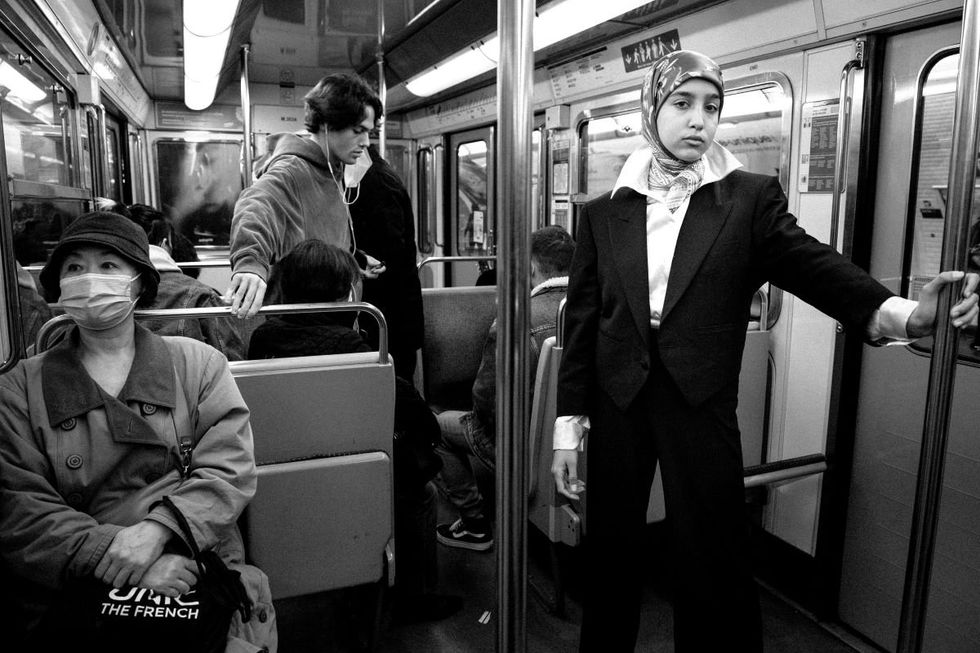
Zineb Koutten shot her first solo exhibition Paris Through Their Lens in Paris.
Photo by Marie Sara, Courtesy of Zineb Koutten.
A recent project she shot in Paris and exhibited in Casablanca, entitled Paris Through Their Lens, highlights 20 hijab-wearing women and their experiences living in France. As a veiled Moroccan woman, Koutten is aware that she represents a group of people who are often overlooked or stereotyped, and wants to upend these prejudices.
“When I meet people, they’re really surprised because I wear my scarf and do what I do. I like that,” she shares. ”I started wearing hijab when I was 14. At first, I did it because I didn’t like my hair.” She pauses, then says, “I didn’t like a lot of things about myself physically and in school I got bullied a lot. My scarf helped me hide myself. The first year was hard, but after that I became one with my hijab and now I can’t really imagine myself without it.”
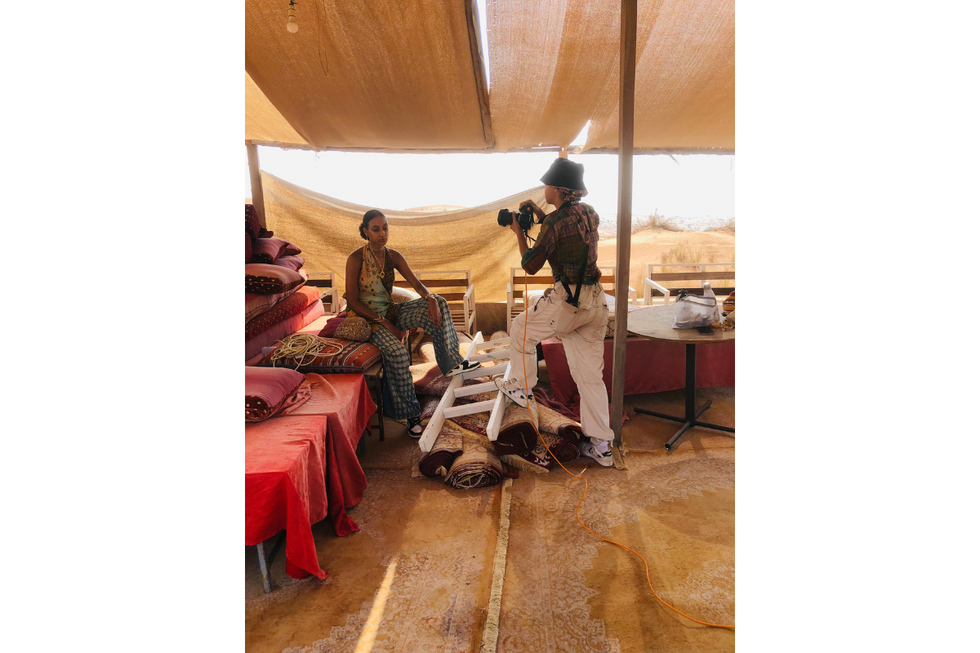
Commissioned work for The FAME Collective, 2023.
Photo by Zineb Koutten.
As a North African woman photographer wearing the hijab, Koutten’s existence is a form of activism. She intentionally shows up to encourage people to not let society stop them from pursuing their dreams. “It happens a lot that society mixes tradition and religion,” she explains. “But it’s tradition and not religion that puts misconceptions in our head. I love my religion and it bothers me when people don’t educate themselves.”
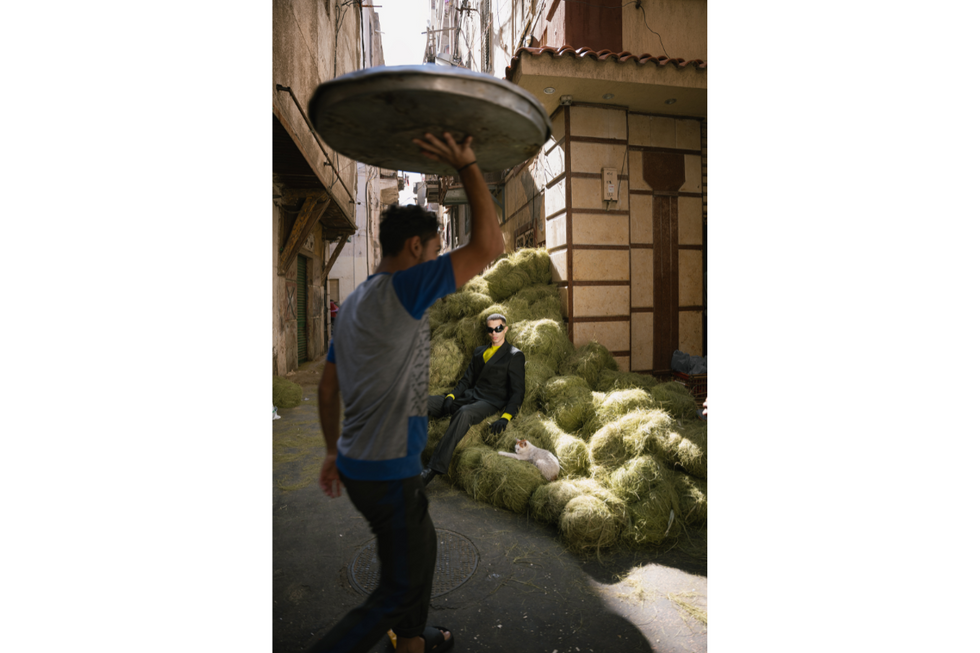
Koutten’s photography merges staged fashion with scenes of daily life.
Photo by Zineb Koutten.
Wearing the veil limited Koutten’s opportunities when trying to pursue a career in modeling, because many clients in Morocco only hire hijabi models to use them as tokens in the game of diversity. In hindsight, she is happy to not have followed that path. “The hijab actually helped me. Without it, I would've just blended in,” she says.
In October 2023, Koutten traveled to Cairo for a photography gig. She usually likes to get to know the models ahead of the shoot. A young woman she met told her about life in Egypt, which is characterized by a wide gap between the poor and the rich and a society structured by class. “I was surprised, because in Morocco this isn’t the case as much,” she says. “I went to Tagamo3 (a wealthy satellite city in the metropolitan area of Cairo) and saw the difference.”
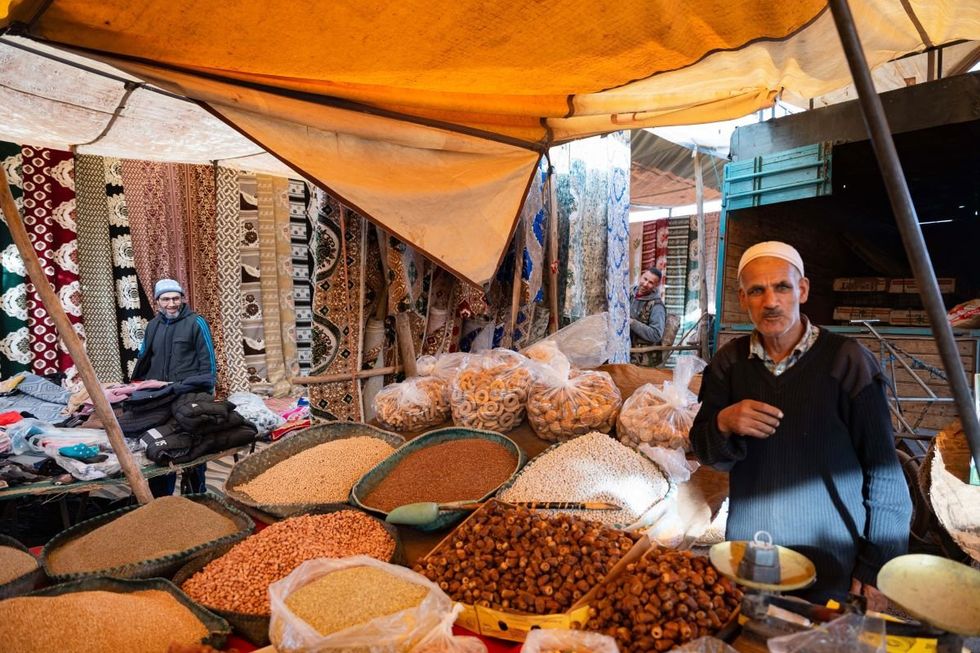
Koutten’s new project is called WLAD CHA3b and honors the working class of Morocco. “People like us,” she says.
Photo by Zineb Koutten.
Koutten, who had just finished Paris Through Their Lens, was inspired to travel back to Morocco and begin her new project WLAD CHA3b (“People of the country”). “I wanted to do a project that celebrates the working class. If they’re not here, society will crumble.” She started photographing people in the medina of Casablanca, interviewing them while they were working their various jobs.
“I’ve always struggled talking to strangers, but I now developed this strategy of joking with them,” she shares with a smile. “In Egypt, I met a photographer and was amazed how he spoke with strangers. It’s important to have a connection with the person I want to shoot, so I just say the joke even though it’s not that funny.”
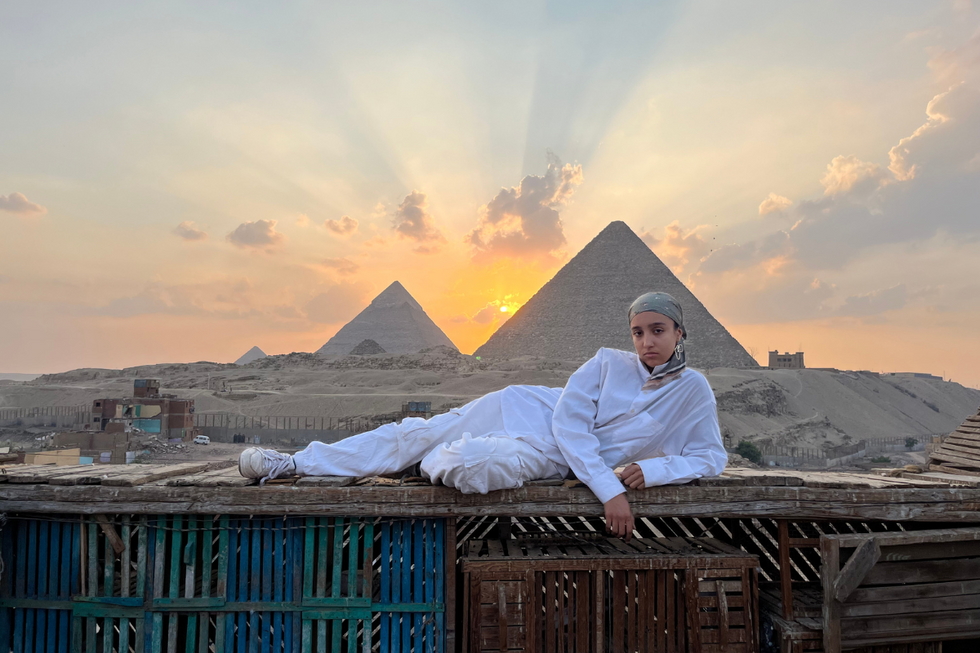
Koutten says that Egyptians and Moroccans have a lot in common. Her time in Cairo has inspired her and given her food for thought for her next projects.
Photo by Mohammed Sherif, Courtesy of Zineb Koutten.
Traveling to Egypt was the first time she visited another Arab country alone. “It really changed my life,” she says. “I always heard about the creative scene in Egypt, how professional the fashion industry is. When I came, every day I had something going on and met someone and talked to locals. Egypt inspires me so much. I’m really honored that the people here accept me.”
Koutten acknowledges her many achievements, but to her, mainstream success is not an end goal. “When you have success you can lose it anytime,” she says. “Success is following my passion and dreams, never stopping, being happy with my family and my religion as well. I’m really living my dream life. Alhamdulillah (praise be to God).”
- Maison ARTC Opens Marrakech Fashion Week 2024 ›
- Simo Ezoubeiri's 'New Suburban Marrakech' Photography ›
- Meet the Moroccan Photographers Looking to Redefine Fashion ›

